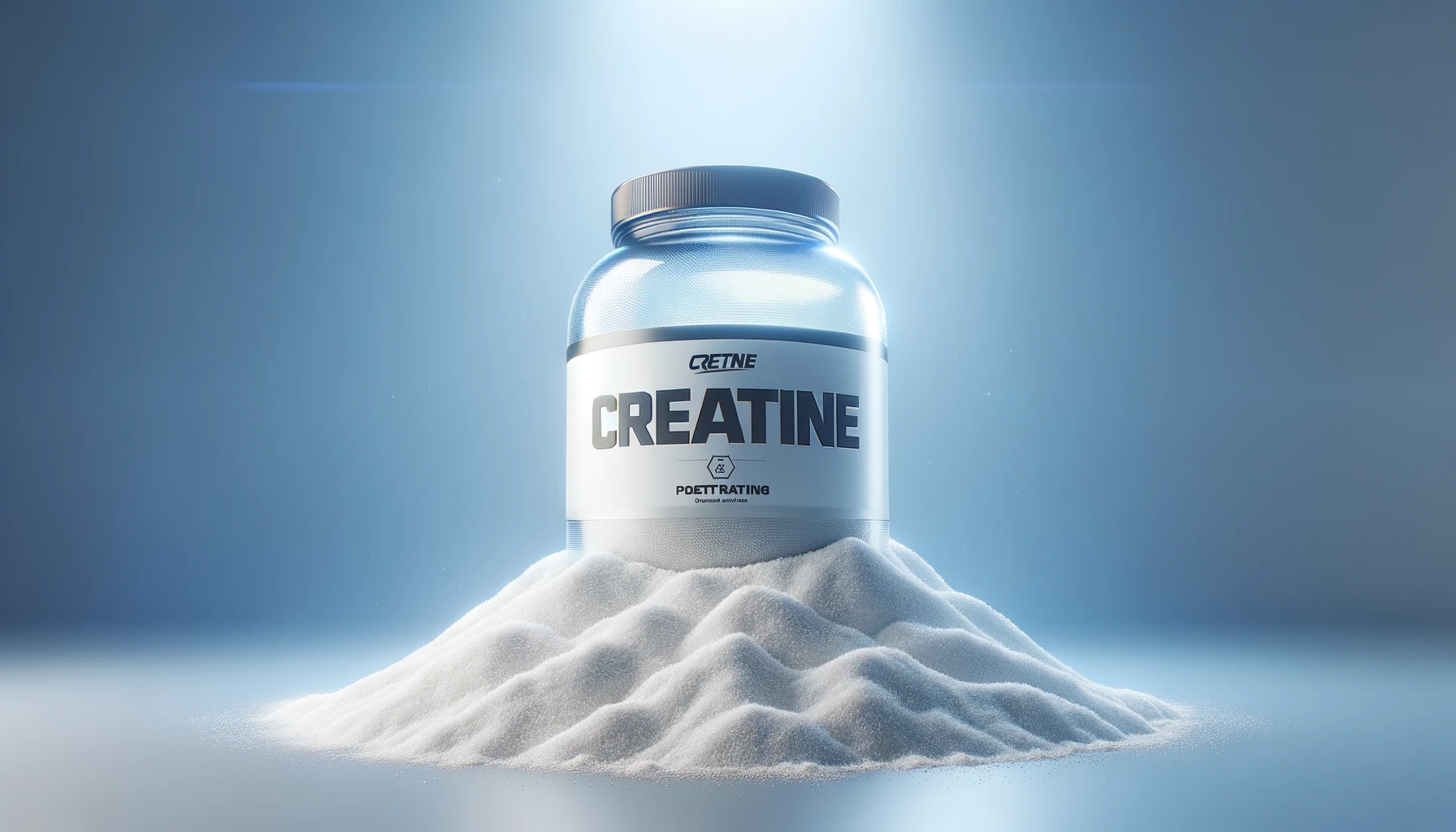In this article, we will delve into the science behind creatine absorption and explore how different forms like Creatine Monohydrate, Creatine HMB, and Creatine Ethyl Ester compare in terms of post-workout absorption rates.
The Science of Creatine Absorption
Creatine absorption refers to the process by which creatine is taken up by muscle cells from the bloodstream. This is a crucial step because creatine plays a vital role in the formation of ATP (Adenosine Triphosphate), the energy currency of the cell.
The faster and more efficiently creatine is absorbed, the quicker it can contribute to ATP synthesis and thus, improve performance and recovery.
The biological mechanisms of creatine absorption involve specialized transporters in muscle cell membranes. These transporters are responsible for moving creatine from the blood into the muscle cells. Understanding these mechanisms can help us make informed choices about creatine supplementation.
Common Forms of Creatine
There are several forms of creatine available in the market, each with its unique chemical structure. The most common forms include Creatine Monohydrate, Creatine HMB, and Creatine Ethyl Ester.
Creatine Monohydrate is the most researched and commonly used form. It consists of a creatine molecule bound to a molecule of water. Creatine HMB, on the other hand, is bound to Hydroxy Methylbutyrate and is known for its enhanced stability. Creatine Ethyl Ester is an esterified form of creatine, designed for better absorption.
The chemical structure of each form affects its solubility, stability, and ultimately, its absorption rate. Therefore, it’s essential to understand these differences when choosing a creatine supplement.
Factors Affecting Creatine Absorption
Several external factors can influence the absorption rate of creatine. These include diet, timing, and co-ingestion with other nutrients. For example, taking creatine with a carbohydrate-rich meal has been shown to improve its absorption. The timing of creatine supplementation also matters; post-workout is often considered the best time for creatine intake to maximize absorption.
Co-ingesting creatine with other nutrients like amino acids can also enhance its absorption. Therefore, understanding these factors can help you choose the right form of creatine and optimize its benefits.
Studies on Post-Workout Creatine Absorption
The subject of creatine absorption post-workout has been a focal point of numerous scientific studies, as understanding this can have significant implications for athletic performance and muscle recovery.
Let’s delve into some of the key research findings that have explored the absorption rates of different forms of creatine when taken after a workout.
Study Comparing Creatine Monohydrate and Creatine Ethyl Ester
One pivotal study aimed to compare the absorption rates of Creatine Monohydrate and Creatine Ethyl Ester. The study involved a controlled group of athletes who were administered either of the two forms of creatine post-workout. Blood samples were taken at regular intervals to measure creatine levels.
The findings indicated that Creatine Monohydrate had a significantly higher absorption rate compared to Creatine Ethyl Ester. This is likely due to the stability and solubility of Creatine Monohydrate, which allows it to be more readily absorbed into the bloodstream and transported to muscle cells.
Research on Creatine HMB
Another noteworthy study focused on the absorption rate of Creatine HMB when taken post-workout. Participants in this study were given Creatine HMB after their workout sessions, and similar to the previous study, blood samples were collected to measure creatine levels.
The results showed that the absorption rate of Creatine HMB was comparable to that of Creatine Monohydrate. This is particularly interesting because Creatine HMB is often touted for its enhanced stability, which could make it a viable alternative for those who experience gastrointestinal issues with Creatine Monohydrate.
The Need for More Research
While these studies provide valuable insights, it’s important to note that more research is needed to draw definitive conclusions. Factors such as the size of the study sample, the duration of the study, and the specific conditions under which the creatine is taken can all influence the results.
Moreover, individual variations in metabolism and digestive efficiency can also play a role in how effectively different forms of creatine are absorbed post-workout.
Implications for Athletes and Fitness Enthusiasts
Understanding the nuances of creatine absorption can help athletes and fitness enthusiasts make more informed choices about their creatine supplementation. For example, if quick absorption post-workout is a priority, Creatine Monohydrate may be the preferred choice based on current research.
However, if you’re looking for a stable form that is easier on the digestive system, Creatine HMB could be a suitable alternative.
Real-World Applications
The information gleaned from scientific studies can be incredibly useful for athletes and fitness enthusiasts. Based on current research, Creatine Monohydrate seems to offer the best absorption rates post-workout. However, Creatine HMB is also a viable option, especially for those who experience gastrointestinal issues with other forms.
SEO Keywords: Real-world applications, athletes, fitness enthusiasts, recommendations.
Frequently Asked Questions (FAQ)
- What is the best time to take creatine for maximum absorption?
- Post-workout is generally considered the best time for creatine supplementation.
- Can I take creatine with other supplements?
- Yes, co-ingesting creatine with carbohydrates or amino acids can enhance its absorption.
- Which form of creatine is best for me?
- It depends on individual preferences and how your body reacts to different forms. Creatine Monohydrate is generally recommended for its proven efficacy and absorption rates.
Conclusion
Understanding the absorption rates of different forms of creatine can significantly impact your athletic performance and recovery. While Creatine Monohydrate is often cited as the most effective form, other types like Creatine HMB also offer promising results. Therefore, it’s crucial to consider various factors like diet, timing, and co-ingestion with other nutrients to maximize the benefits of your creatine supplement.




You must be logged in to post a comment.